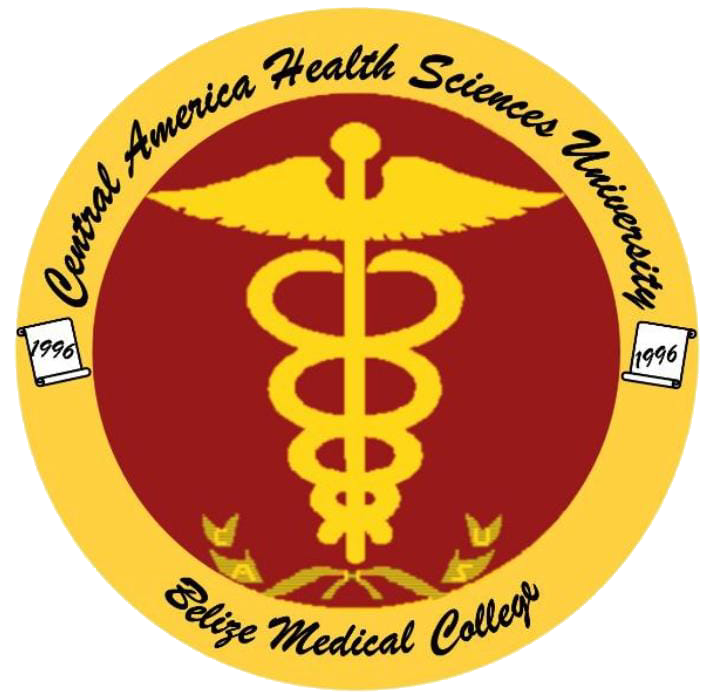THIRD SEMESTER:
- PHARMACOLOGY
- 120 HOURS
The Pharmacology course is designed to provide medical students a basis from which they can apply their knowledge of pharmacology to the prevention and treatment of disease and to assess the usefulness of future therapeutic agents in their practice of medicine. This course encompasses the concepts of pharmacodynamics (e.g., drug-receptor interactions, signaling mechanisms, and dose-effect relationships) and pharmacokinetics (e.g., drug absorption, distribution, metabolism, and elimination). Additionally, the course emphasizes the biochemical and physiological bases for understanding drug action, and it introduces many major classes of drugs. Groups of drugs which are specifically considered include those acting on the autonomic nervous system, those most prominently affecting the immune system, and antineoplastic, antimicrobial, and antiparasitic compounds
- GENERAL PATHOLOGY
- 100 HOURS
The General Pathology course covers the basic pathophysiology of mechanisms of disease in medicine. The knowledge gained from study of these basic mechanisms will be applied to the Systemic Pathology Course, as well as to the 3rd and 4th year clinical rotations. This pathology course will incorporate gross pathologic, microscopic, and radiologic material to assist you in understanding the disease processes and prepare you for licensing examinations. The knowledge gained from a study of pathology will integrate with other courses to provide you with the means for assessment and diagnosis of patients under your care
- ENT
- 20 HOURS
The Dermatology course is designed to provide students with an overview of the clinical aspects of dermatology. This course incorporates and relates material learned in the basic science courses, including histology, physiology, microbiology, immunology and general pathology to the practice of dermatology. Included in this course is an introduction to clinical findings, differential diagnosis, treatment and prognosis associated with diseases of the skin.
- RESPIRATORY MEDICINE
- 20 HOURS
The Respiratory Medicine course is designed to provide students with an overview of the clinical aspects of the treatment of disorders of the respiratory tract. This course incorporates and relates material learned in the basic science courses, including histology, physiology, microbiology, immunology and general pathology to the practice of respiratory medicine. Included in this course is an introduction to clinical findings, differential diagnosis, treatment and prognosis associated with diseases of the respiratory tract.
- NEUROLOGY
- 20 HOURS
The Neurology course is designed to provide students with an overview of the clinical aspects of the treatment of neurological disorders. This course incorporates and relates material learned in basic science courses, including histology, physiology, microbiology, immunology and pathology to the practice of neurology. Included in this course is an introduction to the clinical findings, differential diagnosis, treatment and prognosis associated with neurological diseases.
- FLUIDS/ELECTROLYTES
- 20 HOURS
The Fluid/Electrolytes and Renal course is designed to provide students with an overview of the clinical aspects of the treatment of fluid and electrolyte disorders and kidney disease. This course incorporates and relates material learned in the basic science courses, including histology, physiology, microbiology, immunology and general pathology to the treatment of fluid and electrolyte disorders and kidney disease. Included in this course provides an overview to the diagnosis and differential diagnosis, treatment and prognosis of disorders associated with fluid and electrolyte imbalance and diseases of the kidney.
- ENDOCRINOLOGY
- 20 HOURS
The Endocrinology course is designed to provide students with an overview of the clinical aspects of endocrine disorders. This course incorporates and relates material learned in the basic science courses, including physiology, microbiology, immunology and pathology to the understanding of the basis and clinical implications of endocrine disorders. Included in this course is an introduction to common clinical presentations, differential diagnosis, treatment and prognosis associated with diseases of the endocrine system.
- DERMATOLOGY
- 20 HOURS
The Dermatology course is designed to provide students with an overview of the clinical aspects of dermatology. This course incorporates and relates material learned in the basic science courses, including histology, physiology, microbiology, immunology and general pathology to the practice of dermatology. Included in this course is an introduction to clinical findings, differential diagnosis, treatment and prognosis associated with diseases of the skin.
- LEGAL MEDICINE
- 20 HOURS
The Legal Medicine and Medical Ethics course discusses ethical and legal principles and responsibilities of physicians. Emphasis includes an appreciation and understanding of the relationship of current ethical standards to the health care team and health care delivery.
- ANESTHESIOLOGY
- 20 HOURS
The Anesthesiology course is taught by a practicing Anesthesiologist and is designed to provide students with an overview of the clinical practice of anesthesiology. The student will learn the basic anesthetic principles which govern inhalation, IV and local anesthesia. Emphasis will be directed toward the understanding of physiologic and pharmacologic mechanisms encountered in the daily practice of anesthesiology.
- TROPICAL MEDICINE & PARISITIOLOGY
- 40 HOURS
The Tropical Medicine & Parasitology Course is designed to provide students with both comprehensive and selected detailed information on the fundamentals of diagnosis, treatment, pathology, transmission, and control of human parasites. A large portion of the above is learned simply by knowing the life cycles of the parasites in question and, thus, how to break the chain of infection. Therefore, much of this course will concentrate on the basic life-cycles of parasites. Additionally, the natural history and epidemiology of the major infectious and parasitic diseases that occur in developing countries will be presented.
- PSYCHIATRY
- 40 HOURS
This course encompasses the diagnosis and treatment of psychiatric disorders. The basis of psychological disorders will be presented with tests and techniques used for diagnosis. Material presented in previous basic sciences courses – biochemistry, physiology, neuroanatomy, neurology and pathology will be integrated and applied to the evaluation of psychiatric disorders. Included in this course is an overview of the clinical practice of psychiatry, which includes diagnosis, differential diagnosis, treatment and prognosis associated with psychiatric disorders.



